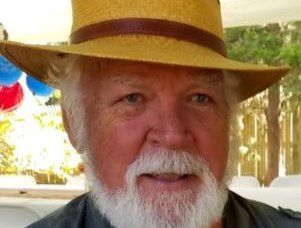God & Science In Two Acts

Two companion pieces, “Sea Wall” and “A Life,” bring the welcome return of Jake Gyllenhaal and Tom Sturridge to Broadway. Recently, the two actors worked together in the film “Velvet Buzzsaw.” Here, they pull off a theatrical coup, speaking directly to the audience, and breaking the imaginary boundary between their reality and ours.
In “Sea Wall,” playwright Simon Stephens (“Heisenberg,” “Harper Regan”) demonstrates, once again, his capacity to draw deeply emotional, richly complex characters. Mining this solo piece, the actor Tom Sturridge, as Alex, enchants us with his storytelling.
Sturridge’s physicality is engrossing. He’s as light as a butterfly, and as graceful. At times mimicking his daughter, he reveals his own childlike qualities. His story is about family: Lucy, his wife, Helen, and his father-in-law, Arthur.
He describes them each with sensitivity, and such specificity, that somehow they seem as familiar to us as they are to him. At least, we feel that way when the actor talks to us. After all, we’re part of the story. And Alex is quick to humor us.
Once, questioning Arthur about his fervent insistence on the existence of God, Alex asks what he looks like. Arthur responds, “Whatever I think he is least likely to be like, then that is what he will be.” Alex says, “So, I ask him if he means God looks a bit like Danny DeVito . . .”
The existence of God is one of the mind-grappling issues at work in Alex’s life. Loss challenges us to wonder about the nature of a divine spirit, and to question the inexplicable nature of things.
In “Life,” Act II of the evening, Gyllenhaal jaunts quickly onto the stage, and mistakenly turns off all the lights. He opens the stage door to figure out how to get the lights back on. He screws it up a couple of times, and finally gets it right.
Like Alex, Gyllenhaal’s Abe is talking about having a baby. But unlike Alex, Abe acts out the other characters in the story. From the very beginning, there is an inner duality at work. In this actor’s masterful hands, however, it all flows seamlessly even when contrary events occur simultaneously.
Gyllenhaal is well acquainted with the work of playwright Nick Payne, whose plays “Constellations” and “If There Is I Haven’t Found it Yet,” he previously appeared in. Here, Payne evokes a quintessential challenge of physics about how two things can inhabit the same space at the same time. We’re in the realm of atomic fusion.
When we meet Abe, he’s basting chicken for their dinner party when Mary imparts that she’s pregnant. Their daughter arrives simultaneously with the death of a loved one. Gyllenhaal takes hairpin turns, assisting in his wife’s difficult child birth, while trying to say his final goodbyes.
Directed by Carrie Cracknell, the production is animated, deeply human, and highly personal. Performed on a nearly naked stage, it’s the soulful human experience that we share.
Dust
Rumination, reflecting on one’s inner thoughts, is the soulful enterprise of Milly Thomas’s one-woman performance piece, “Dust.” Directed by Sara Joyce, Thomas’s solo play arrives on the heels of multi-award-winning performances across the UK, and on London’s West End.
It’s now at Next Door at NYTW, through September 29. An initiative of New York Theatre Workshop, Next Door at NYTW provides subsidized resources, and performance space to artists producing their own work.
Here, in “Dust,” Thomas speaks to us from the morgue. She’s been dead for three days. And as she looks back now, her ruminations carry us with her into the depression that entombed her everyday world. To listen to her story of self-hatred — the diets she forced on her body, the way she obsessed over her physical appearance, not to mention the way young men used her for it — sounds like the rantings of a “typical” victim.
Given her outcome, the quotidian manner in which Thomas highlights the ordinary events of her life should seem odd to an audience. Over the course of her 70-minute monologue, her understated performance builds to a fever pitch. Death isn’t what it’s cracked up to be, or at least, it doesn’t fulfill Thomas’s quest.
Graphically physicalizing the oral sex she’s choked on, and the intercourse she’s had with her boyfriend, defies congratulations. Her behavior and her submissiveness make her feel sick.
Her earnest refrain, “I stayed with you because I was afraid of being by myself” sounds too plaintively familiar. In this regard, she becomes an everywoman. The fact that she cuts herself takes it a step beyond.
Max Perryment’s sound design serves as the lightning rod, carrying the piece from moment to moment. There are eerie psycho sounds, a cacophony of chattering voices mixed into electronic jitter, and music that would befit Alice looking through a looking glass.
Life interrupted is a reality for Alice, as it is for many women. Depression kept her from being able to live. To her family and friends, she appears to be nothing more than a slacker, incapable of earning money and taking care of herself.
At her funeral, her mother reads the lyrics from Alice’s favorite song. But that song expresses the longings of a 15-year old, Alice opines. Her dope-addled brother, racing to the pulpit, speaks his eulogy. “I don’t know where being depressed ends, and being a c**t begins,” he screams.
But the quip Ben, her boyfriend read on Tumblr, speaks eons: “There’s a time when your parents put you down when you’re a kid, and they never pick you up again.” In death, she misses hugs and swimming — not really. It’s simply happiness that is lost, and never regained.



